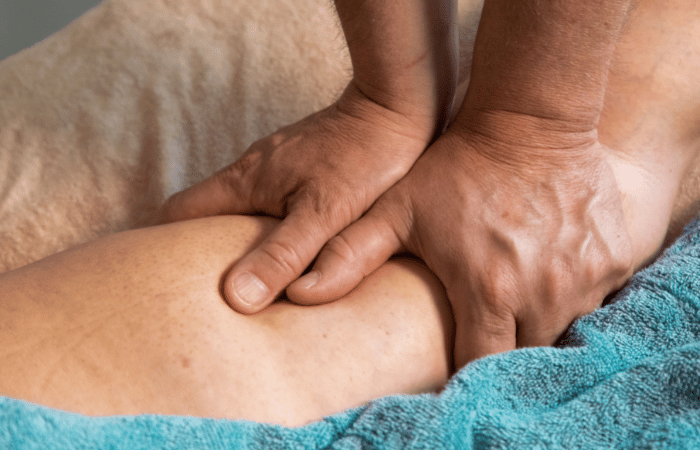Whether you’re gearing up to run your first Gold Coast Marathon or just took up a new sport, there’s a lot to know about recovery. Even experienced athletes can benefit from a refresher now and then.
The truth is that bodies’ needs change as individuals train. What worked for you as an amateur athlete may no longer be effective for your post-workout needs. That’s why we believe it’s important to continually reflect and redefine post-workout recovery strategy.
Why Recovery Is So Important for Athletes
Your metabolism runs in phases: catabolic and anabolic. These stages happen simultaneously, but each one uses different hormones and serves a unique purpose.
The catabolic phase happens whenever your body digests food, but also when you engage in physical activity. Hormones like adrenaline, cortisol, and glucagon are used to break down food into energy and power your muscles through a process called glycolysis.
The anabolic phase nurtures muscle growth and gains. For an athlete looking to develop their muscle mass and strength, anabolic exercises will play a significant role in their training. Hormones like insulin, estrogen, testosterone, and the growth hormone are all used during this phase.
Being in an active catabolic state for too long can cause you to lose muscle mass. Aerobic and cardio exercises are all catabolic. While it’s important to get at least 20 to 30 minutes a day for overall health, too much physical activity poses a threat to your overall well-being.
You need to enter restful anabolic stages to restore and recover. As an athlete, this is the recovery period that helps your muscles relax and grow even stronger to improve performance.
Top Tips for Sports Recovery
1. Eat Protein After an Intense Workout
Exercise of any kind breaks down the proteins that make up your muscles. By refueling after a workout, you can help your muscles recover more quickly. How much protein you consume, however, is important.
Be wary of having too much protein in your diet on top of any sports supplements. Protein builds up in the body, and an excess amount can lead to kidney damage and health complications.
As a general guideline, 10 to 20 grams of protein is sufficient for post-workout recovery, according to registered dietician Leslie Bonci in an article for Forbes.
2. Eat a Natural Diet
Eliminating processed foods and refined carbohydrates and sugar can optimize your body’s overall function. Over-eating unhealthy foods deprive the body of essential vitamins and nutrients; your overall athletic performance will drop if your body doesn’t have the baseline nutrients it needs to perform, even at the most fundamental level.
An imbalanced diet also increases risk of sports injury, because your muscles lack the nutrient support they need to contract and lengthen effectively. During an event, and especially after, make sure you consume plenty of fruits, vegetables, and the recommended amount of protein.
3. Drink Plenty of Water
Hydration is key to staying safe and giving your body energy during sports. Dehydration is a leading cause of soreness and cramping, so make sure you drink plenty of fluids during and after any physical activity.
To determine how much water you should drink, it is helpful to calculate how much you’ve lost through exercise. This calculator helps you estimate the right amount of hydration after exercise based on your age, gender, height, and weight.
4. Get Sports Massage Therapy
Massages seem like an indulgence for most, but they’re a fundamental part of many athletes’ recovery routine. A sports massage can help reduce the onset of muscle soreness after exertion and assist in myofascial release.
If you struggle with stiffness or tension after working out, consider integrating massage therapy into your regime.
5. Avoid Alcohol and Tobacco
Both alcohol and tobacco are harmful to your body, and they also increase the risk of developing various types of cancer and muscle diseases. Research shows that alcohol impairs post-workout protein synthesis among athletes, while tobacco harms your lungs and weakens your overall musculoskeletal health.
6. Maintain a Healthy Sleep Schedule
Sleep is one of the most restorative processes your body performs, so you need to prioritise getting at least 7 hours every night.
During a normal sleep cycle, your body produces hormones it needs to function, and releases protein-building amino acids that aid muscle repair and growth.
Lack of sleep can force your body to stay in a catabolic process, which means it continues to burn fat and use muscle rather than grow and recover.
If you struggle with any sleep conditions, or just have difficulty getting a good night’s rest, seek treatment options through your GP or a mental health therapist.
7. Try Cryotherapy
Exercising raises your body’s temperature, which causes it to lose fluids through sweat and can cause dehydration. Cryotherapy stimulates blood circulation and your lymphatic system, which helps carry fluids throughout the body and cleanse it of toxins.
In addition to improving blood flow, cryotherapy can also help tissues and muscles receive nutrients more quickly.
8. Use CrampFix
CrampFix is designed for athletes of all levels to stop muscle cramps within 2 minutes. Using electrolytes like potassium and magnesium chloride, as well as vinegar, CrampFix helps athletes get the best results with the smallest dose.
Our products are also able to assist during recovery by consuming one 10 ml sachet to prevent post-workout cramps and ease muscle tightness.
Learn More With Fixx Nutrition
Fixx Nutrition is by athletes, for athletes. Our rapid cramp relief products harness the science of nutrition and, surprisingly, pickle juice, to help you stay active and avoid post-workout discomfort.
As a 2022 Official Sports Nutrition Partner of the Gold Coast Marathon, we are honoured to continually help athletes do what they do best.
Read our story to learn more about our mission, and browse our shop to learn more about CrampFix’s benefits.


